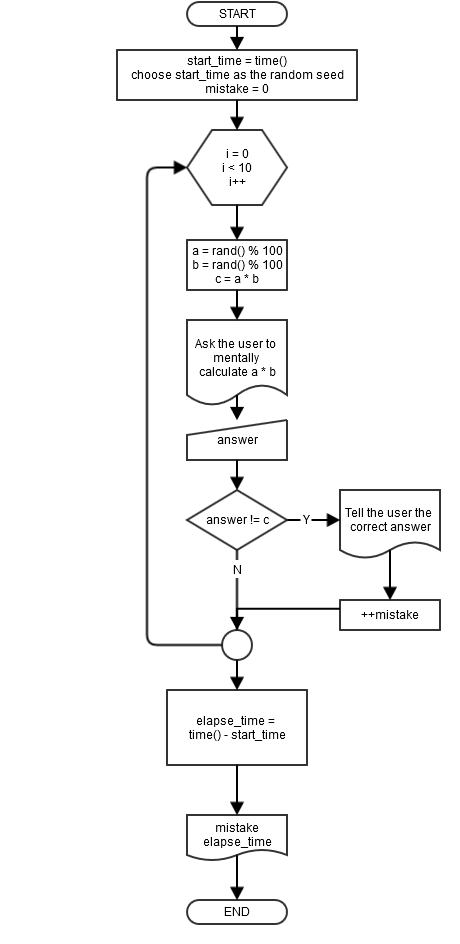19 * 19 = 361
72 * 6 = 432
64 * 12 = 768
85 * 57 = 4845
16 * 83 = 1328
65 * 9 = 858
Wrong! 65*9=585
80 * 36 = 2880
14 * 92 = 1288
27 * 65 = 1755
33 * 4 = 133
Wrong! 33*4=132
You made 2 mistakes today.
The flowchart of the program:

#include <iostream>
using std::cout;
using std::cin;
int main()
{
unsigned int t0, t1;
int n;
t0 = time(NULL);
cout << "Please input an integer -- ";
cin >> n;
t1 = time(NULL);
cout << t1 - t0 << " seconds has elapsed.\n";
return 0;
}
#include <iostream>
#include <cstdlib>
using std::cout;
using std::endl;
int main()
{
srand(time(NULL));
for (int i=0; i<10; ++i)
cout << rand() % 6 << endl;
return 0;
}
The program may run as follows:
|
The flowchart of the program: 
|